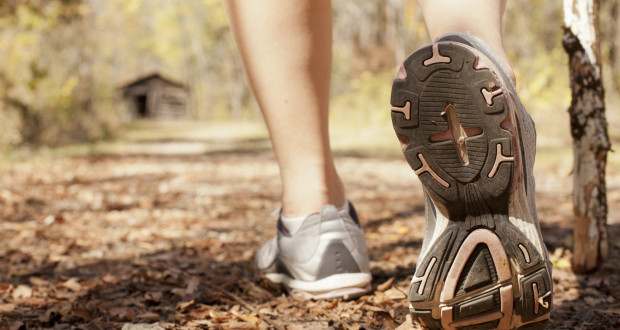By: Red Hot Mamas
Published: June 22, 2007
From drug ads to diet books, we hear so much about menopause and women’s health that it can be hard to know what’s true. We’ve listed 10 common myths – and the reasons why women should not believe them.
1. Bioidentical “natural” hormones are better than traditional hormone therapy.
There is no evidence that bioidentical hormones are safer or more effective than other hormone therapy. Large research studies have not been conducted on bioidentical hormones, and the compounding pharmacies that prepare and distribute them are inadequately regulated. In the absence of data, women are probably best served by assuming that the potential harms of bioidentical hormones are similar to those of conventional hormones.
2. Women go off our rockers at menopause – suffering from hot flashes, memory loss and depression – and the rest of our lives is downhill.
What an awful picture! In reality, for many women, the menopause transition involves relatively minor discomforts that do not require medical intervention or treatment. Even for women whose hot flashes or other discomforts are intense, the problems are generally temporary and there are often other options available for managing them. Similarly, the stereotype of all women losing our minds and falling into depression at menopause is simply inaccurate.
3. Women always lose interest in sex as we age.
Our sexual desire fluctuates throughout our lives. It is affected by the quality of our relationships, our emotional and physical health, and many other factors. Some commonly used medications (including blood pressure and heart medications and some antidepressants) can affect desire, arousal and/or quality of orgasms. If you suspect that your medications may be affecting your sexual responses, read the complete package insert and talk with your healthcare provider about options for reducing the dose or switching to a drug with fewer negative side effects. Also, some women experience vaginal dryness, irritation or pain with penetration during and after the menopause transition. Such discomfort may be alleviated with vaginal moisturizers or lubricants. If other treatments are not successful, some women may want to consider local estrogen (in cream, vaginal tablets or a ring). Because of its known harmful effects, estrogen is recommended only at the lowest dose and for the shortest time that is effective.
4. Bone density predicts whether a woman will fracture a hip.
Bone density is a factor in fracture risk, but not the only one. Age, medications, and individual and family history of fractures are also factors. You can reduce your risk of fracturing a hip by getting enough calcium and vitamin D, exercising regularly, not smoking, having your vision checked and clearing your environment of fall hazards, such as scatter rugs.
5. If no one else in a woman’s family has had breast cancer, she won’t get it either.
A family history of breast cancer (particularly in more than one close relative, such as a mother or sister) does increase a woman’s chance of developing the disease. But about 70 percent of women who get breast cancer have no family history or known genetic risk.
6. Unexpected pregnancies and sexually transmitted infections are concerns only for younger women.
Those of us over 40 have far fewer pregnancies than younger women. But many of our pregnancies – some experts estimate more than half – are unexpected. Even when birth control is no longer an issue, it’s vital to protect ourselves from sexually transmitted infections. This is particularly important for those of us who have new or multiple partners, but those of us who are in long-term relationships also may benefit from taking precautions, because we may not know the risks to which our partners are exposing us.
7. Gaining weight and losing strength and energy are inevitable as we get older.
Such changes are common, but not always inevitable. For many women, the main causes are decreased physical activity and poor eating habits. The solutions? Introduce more healthy foods and snacks into your routine and find ways to get yourself moving, whether it’s using the stairs instead of the elevator or taking a dance class with a friend. While you may need to modify your activities as you grow older, studies have shown that strength can be maintained and perhaps increased at any age. If you exercise regularly, you will likely have more energy and sleep better, too.
8. Women who have high cholesterol but don’t have heart disease should take cholesterol-lowering drugs to prevent it.
Cholesterol-lowering statin drugs are popular, but there is not a single “gold standard” randomized controlled trial that shows they help women who do not yet have heart disease. If you are considering taking a statin to prevent heart disease, learn more about options for your situation. You can reduce your risk of developing heart disease by exercising regularly, eating a Mediterranean-style diet and not smoking.
9. If a doctor recommends a hysterectomy, it’s probably necessary.
About one third of all American women have had a hysterectomy (the surgical removal of the uterus) by the age of 60. While hysterectomies have saved lives and restored health for some women, studies have concluded that many of the operations are not needed and pose unnecessary risks. New, less invasive treatments are available.
10. The best way to prevent disease is through medication.
While medications can play an important role in preventing illness, there are many other things we can do to improve our health. Eating well, being physically active and not smoking top the list. Sometimes, changing our own behavior will have a greater positive effect than taking a pill, without any of the risks. We may need support to make such changes, but the benefits make it worth the effort.
Written by Our Bodies Ourselves (http://www.ourbodiesourselves.org/default.asp), a nonprofit women’s health and advocacy organization. For more information on health and sexuality topics of interest to midlife women, see http://www.ourbodiesourselves.org/book/chapter.asp?id=26.”
 Red Hot Mamas In Charge of Change.
Red Hot Mamas In Charge of Change.




